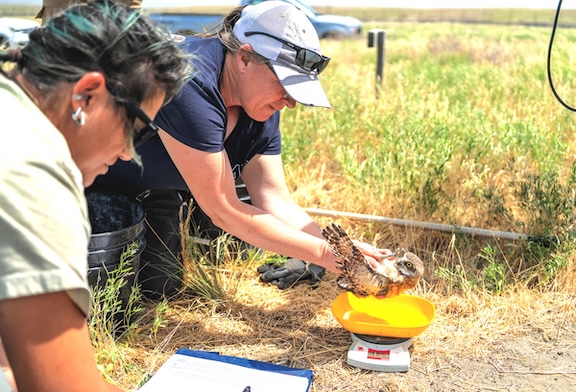Other views: Progress on groundwater requires coordination, leadership
Published 6:00 am Wednesday, January 31, 2024

- Graham
Solving a challenge as complex and enduring as nitrate in groundwater requires understanding, agreement and commitment — understanding the science, agreeing on goals, and committing to long-term progress.
Trending
This issue isn’t unique to the Lower Umatilla Basin. One of the most significant hurdles facing every basin in the U.S. is the lack of an entity with outright responsibility for groundwater. Instead, there is a tangled web of parties concerned individually with environmental impacts, public health, agricultural use, and long-term supply spread among various local, state, federal and tribal agencies.
Real, lasting solutions require not only local collaboration, but a clear delegation of responsibilities and persistent leadership.
The selection of community member Jane Hill as the new liaison between state agencies and the Lower Umatilla Basin Groundwater Management Area Committee, through the National Policy Consensus Center at Portland State, is a crucial step in our mission to ensure safe and reliable drinking water in our communities.
Trending
We appreciate Gov. Tina Kotek’s recognition that this ongoing collaboration, as led by NPCC and Hill, is an important step in the right direction. Hill has decades of experience in Eastern Oregon and will have the leverage and experience to identify gaps, and advocate for resources toward fixing them. She will be able to convene productive conversations and carry them through to produce results.
Her work will strengthen the efforts of the LUBGWMA, which has made great strides in collecting information and developing well-informed solutions. However, LUBGWMA has been a volunteer endeavor without the resources to go deep on its research or put the necessary muscle behind its findings. Securing funding for its projects and promoting its work going forward will be a key to the committee’s success.
Without coordination, foundational work like maintaining private well directories and conducting meaningful, peer-reviewed research is often deprioritized and underutilized. Affected communities are left to address the immediate health risks without exploring or implementing long-term answers.
Water for Eastern Oregon — or, H2OEO — was created to help dig into the problem by making connections between relevant partners and promoting follow-through on viable options. There are positive signs the Lower Umatilla Basin is on the right track, and we hope to find success where so many others across the U.S. have struggled.
The recent announcements of a combined $3.6 million from the EPA and the Port of Morrow/Oregon Department of Environmental settlement being applied directly to efforts in the basin is also welcome news. These funds can go toward impactful work like testing wells, providing immediate assistance for people affected by nitrates, and gaining a better understanding of the aquifers beneath our feet.
If done correctly, this means that we can help improve the public’s understanding of their potential risks and options for remediation. It will also boost the ongoing work of the county health departments to be a resource for their communities.
The Oregon Health Authority has made commendable progress in providing information to well users, but there’s still much more ground to cover. There are still hundreds of local households in need of testing and, potentially, filtration systems or better long-term solutions.
Our current situation has been building for 150 years, and it won’t be solved overnight. H2OEO is committed to supporting the path forward for our community. In Eastern Oregon we are problem solvers by nature. We watch out for our neighbors, and have proven we can come together to make out communities healthier and more sustainable.
We have an opportunity to not only ensure safe drinking water here, but create a template that can be replicated across the country.
Editor’s Note
{div class=”asset-highlight related-wrapper subscriber-hide” data-gtm-vis-recent-on-screen53988557_169=”684” data-gtm-vis-first-on-screen53988557_169=”684” data-gtm-vis-total-visible-time53988557_169=”100” data-gtm-vis-has-fired53988557_169=”1”}{div class=”panel panel-default” data-gtm-vis-recent-on-screen53988557_169=”685” data-gtm-vis-first-on-screen53988557_169=”685” data-gtm-vis-total-visible-time53988557_169=”100” data-gtm-vis-has-fired53988557_169=”1”}{div class=”panel-body” data-gtm-vis-recent-on-screen53988557_169=”687” data-gtm-vis-first-on-screen53988557_169=”687” data-gtm-vis-total-visible-time53988557_169=”100” data-gtm-vis-has-fired53988557_169=”1”}Do you have a point you’d like to make or an issue you feel strongly about? Submit a letter to the editor or a guest column.
{/div}{/div}{/div}









